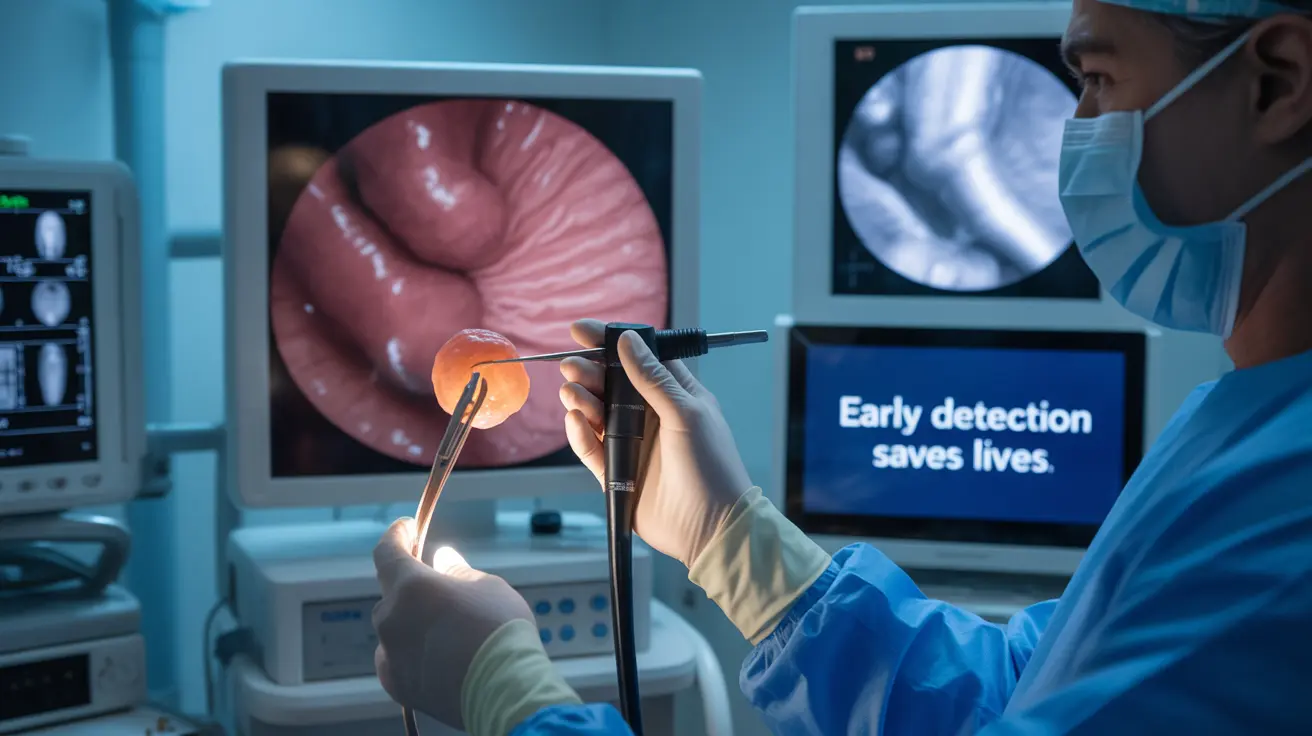A polypectomy is a medical procedure to remove polyps—small growths of tissue that can develop on the lining of the colon. This important procedure is typically performed during a colonoscopy and serves as both a diagnostic and preventive measure against colorectal cancer. Understanding what to expect during a polypectomy can help ease anxiety and ensure better preparation for the procedure.
While most polyps are benign, some can develop into cancer over time. Regular screening and removal of polyps through polypectomy is a crucial step in preventing colorectal cancer and maintaining digestive health.
Understanding Polypectomy and Its Importance
During a colonoscopy, if your doctor discovers polyps, they will typically remove them immediately through a polypectomy. This approach is efficient as it eliminates the need for additional procedures and allows for immediate testing of the removed tissue. The procedure is generally painless as it's performed while you're under sedation during the colonoscopy.
The removal of polyps is essential because it prevents potential progression to cancer and allows for laboratory examination to determine if the polyps are precancerous or already showing signs of cancer.
Preparation Requirements
Preparing for a polypectomy is essentially the same as preparing for a colonoscopy. The success of the procedure largely depends on how well you follow the preparation instructions:
- Clear liquid diet the day before the procedure
- Complete bowel preparation as prescribed by your doctor
- Stop certain medications as directed
- Arrange for someone to drive you home
- Fast for several hours before the procedure
Polypectomy Techniques and Methods
Hot Snare Polypectomy
This common technique uses an electrified wire loop to remove larger polyps. The electric current simultaneously cuts and cauterizes the tissue, preventing bleeding.
Cold Snare Polypectomy
Smaller polyps can be removed using a wire loop without electrical current. This method is particularly safe and effective for polyps less than 10mm in size.
Other Removal Methods
Depending on the size and location of polyps, doctors might use additional techniques such as:
- Biopsy forceps for tiny polyps
- Endoscopic mucosal resection for larger polyps
- Liquid injection beneath the polyp for safer removal
Recovery and Aftercare
Most patients recover quickly from a polypectomy and can return to normal activities the next day. However, you may experience:
- Mild abdominal discomfort
- Small amount of blood in first bowel movement
- Bloating or gas
Your doctor will provide specific instructions about diet, activity levels, and when to resume regular medications.
Polyp Testing and Results
After removal, polyps are sent to a laboratory for analysis. The testing process typically examines:
- Size and type of polyp
- Presence of precancerous or cancerous cells
- Completeness of removal
Results usually become available within 1-2 weeks, at which point your doctor will discuss any necessary follow-up care.
Frequently Asked Questions
- What is a polypectomy and why is it performed during a colonoscopy?
A polypectomy is a procedure to remove polyps from the colon during a colonoscopy. It's performed to prevent potential cancer development and to test removed tissue for existing cancer cells.
- How should I prepare for a colonoscopy with polyp removal?
Preparation includes following a clear liquid diet, completing bowel preparation medication, stopping certain medications as directed, and arranging transportation home. Your doctor will provide specific instructions based on your situation.
- What are the different methods used to remove polyps during a polypectomy?
Methods include hot snare polypectomy (using electrified wire), cold snare polypectomy (non-electrified wire), biopsy forceps, and endoscopic mucosal resection. The chosen method depends on the polyp's size and location.
- What can I expect during recovery after a polypectomy and what are possible complications?
Most patients recover quickly and can return to normal activities the next day. Minor discomfort, bloating, and small amounts of blood in the first bowel movement are normal. Serious complications are rare but can include bleeding or perforation.
- How are the removed polyps tested, and when will I get the results?
Removed polyps are sent to a laboratory for microscopic analysis to determine their type and if they contain precancerous or cancerous cells. Results typically become available within 1-2 weeks after the procedure.




